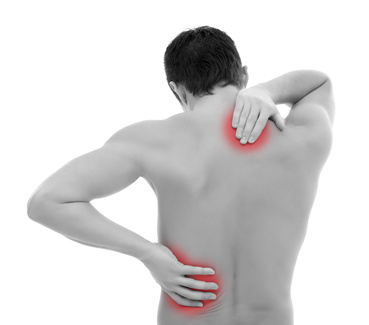
What Is Nociceptive Pain? — Nociceptive Pain Treatment in Marbella
11/08/2022Nociceptive pain is tissue damage-related discomfort. Nociceptive pain affects muscles, joints, and bones. Here we talk about nociceptive pain and our treatment in Marbella.
What Are the 3 Types of Nociceptive Pain?
Nociceptors are nerve ending receptors that can be found in your skin, joints, muscles, and organs. Nociceptors are responsible for transmitting pain signals. These receptors will send chemical and electrical signals to your brain whenever they detect something that may be harmful to your body. The information is processed by your brain, which then sends a signal to the rest of your body indicating the presence of discomfort.
Your nerve endings are made up of A delta fibres and C delta fibres, both of which are subdivided into smaller fibres. Your brain is alerted immediately to the sensation of pain by the rapid transmission of signals from your a delta fibres. C delta fibres are responsible for the transmission of slower signals and for indicating the level of pain.
There are three distinct ways that your nociceptors can detect pain, and these are as follows:
- Mechanical receptors. These are able to detect damage to your skin, bones, connective tissue, and muscles as well as force, pressure, and stretching applied to the body.
- Thermal receptors. These types sense extreme temperatures.
- Chemical receptors. These receptors are able to detect chemicals like lactic acid that are present in your body, which can activate pain pathways.
There are receptors that respond to all of these, and these receptors are referred to as polymodal receptors. For example, thermomechanical pain activation takes place when something that is hot and also puts pressure on your body at the same time.
What Are Examples of Nociceptive Pain?
Even though injuries are the most common cause of nociceptive pain, certain diseases are also capable of causing this type of discomfort. These might be some examples:
- Cuts
- Broken bones
- Bruises
- Burns
- Crush injury
- Repetitive use that strains your muscles
- Damage to the joints, such as that caused by arthritis or sprain
Nociceptive pain can also be caused by the breakdown or obstruction of any of your body's soft tissues or internal organs. These can be caused by a wide variety of conditions, including tumours, kidney stones, ulcers, and many other conditions as well. Because the cancer cells invade your tissues, bones, or organs, the pain that you feel is typically referred to as nociception.
In most cases, nociceptive pain is characterised as:
- Dull
- Achy
- Sharp
- Throbbing
- Cramping
Depending on the severity of the injury and the C delta fibres, it can range from a mild annoyance to a severe, unrelenting pain. It is possible for it to be consistent or it may come and go. It is possible that certain movements, such as coughing or laughing, could make the condition even more severe.
Nociceptive Pain Treatment in Marbella
Because pain is a sign that something is wrong, the most effective treatment for nociceptive pain is to address the underlying cause of the pain. Our Nociceptive Pain Treatment in Marbella will consist on treating a wound or injury, and once it has healed, you will no longer feel any pain from it. However, because this process can be time-consuming, nociceptive pain is typically treated with analgesics and other types of therapies.
These may include the following:
- Pain relievers available without a prescription
- NSAIDs, which stand for nonsteroidal anti-inflammatory drugs
- Massage
- Physical therapy
- Surgery
- Prescription opioid medications
- Antidepressants
Complications of Nociceptive Pain
It is not always easy to deal with the discomfort that comes along with pain. Extreme and persistent pain can be debilitating, can disrupt your life, and is almost always an indication that something is wrong.
Despite the fact that prescription pain medications can help alleviate pain, using them regularly can lead to addiction as well as other serious health issues. Talk to our doctor if you're experiencing severe pain or pain that doesn't seem to be getting better over time.